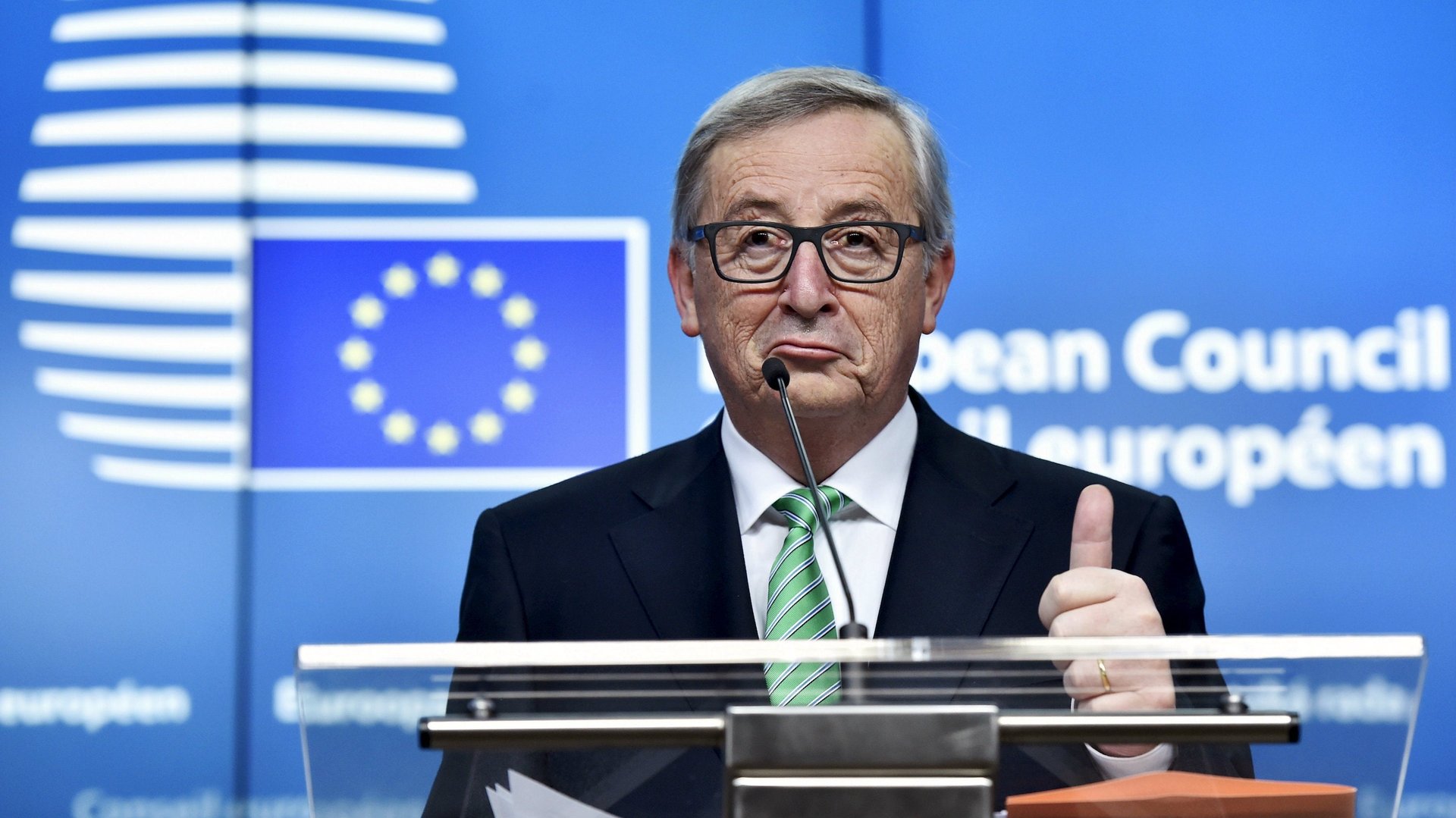The EU Commission president believes Britain isn’t hurtling towards a “hard Brexit”
Britain’s prime minister Theresa May has made it clear, since she took over from her predecessor in July last year, that she would take the UK out of the European Union single market so the country can have full control over immigration. This is called a “hard Brexit” as it essentially means quitting the union without a deal in place on issues like the movement of people or trade. But the president of the European Commission thinks that by the time Britain leaves the EU on Mar. 29, 2019, a “hard Brexit” is unlikely.


Britain’s prime minister Theresa May has made it clear, since she took over from her predecessor in July last year, that she would take the UK out of the European Union single market so the country can have full control over immigration. This is called a “hard Brexit” as it essentially means quitting the union without a deal in place on issues like the movement of people or trade. But the president of the European Commission thinks that by the time Britain leaves the EU on Mar. 29, 2019, a “hard Brexit” is unlikely.
“My working hypothesis is that there will be a deal. I don’t want to imagine a situation where Britain would leave just saying goodbye, without an arrangement for the future. So I do not envisage a so-called hard Brexit,” said Jean-Claude Juncker in an interview he did with three young YouTube video creators for EuroNews.
The full interview is here:
He also reiterated that he thinks Britain will regret the decision to leave the EU, but clarified that remarks he made earlier this week during his State of the Union speech to the European Parliament were not meant as a threat to the UK.
“It was the answer to an interruption. I wasn’t intending to say ‘You will regret it soon,’ but the UKIP MEPs [Members of European Parliament] and the extreme right challenged me. I said: ‘We will always regret this decision by the British people, while we accept this decision.’ They interrupted me, and so I said it like that: ‘You will regret it soon.’ And it’s true,” said Juncker. The UK Independence Party is a populist party strongly focused on immigration control.
Juncker’s comments are in line with the chancellor of the UK’s comments that Britain is likely to seek a “bespoke” deal for London’s financial hub, which suggests some arrangement that would keep it in the single market. Philip Hammond also pledged cooperation with the prime minister in getting the best deal possible for a sector that is one of the driving forces for the UK economy.
However, we’ll know more on Sept. 22, when prime minister May will deliver a speech on Brexit.